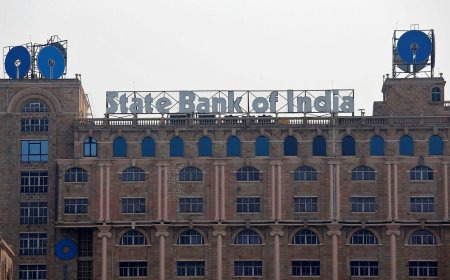BHEL bags Rs 6,500 crore contract from Adani Power for 6 thermal units
BHEL secures one of its largest private orders worth ₹6,500 crore from Adani Power to supply and install six thermal units, signaling renewed strength in India's thermal power sector.

New Delhi, June 28, 2025 — In a major boost to the domestic engineering and capital goods sector, Bharat Heavy Electricals Limited (BHEL) has won a ₹6,500 crore order from Adani Power Limited for setting up six thermal power units. The announcement was made on Friday through stock exchange filings by BHEL, sending its shares up by nearly 4% in intraday trading.
The contract includes the supply and installation of critical equipment for six units of thermal power generation, aggregating a total capacity of approximately 6,000 MW. These units will be developed across multiple states where Adani Power is either expanding existing capacity or establishing greenfield thermal projects.
Scope and Significance of the Order
The ₹6,500 crore deal represents one of BHEL’s largest contracts from the private sector in recent years, underscoring the company’s continued relevance in India's energy infrastructure.
BHEL stated that it will supply boilers, turbines, generators (BTG packages), and balance of plant equipment for the thermal units, along with associated civil works and services. While specific project locations were not disclosed, sources suggest that the units are likely to come up in Gujarat, Jharkhand, and Maharashtra—key regions in Adani Power's thermal portfolio.
“This order highlights the resurgence of thermal power investment in India and BHEL’s unmatched capabilities in executing complex large-scale projects,” the company said in a statement.
Thermal Power Making a Comeback
Over the past few years, India's energy transition has focused predominantly on renewables. However, with persistent power demand and grid stability concerns, thermal power—especially coal-based—continues to play a stabilizing role.
According to data from the Central Electricity Authority (CEA), thermal power still accounts for around 55% of India's electricity generation. The country added 8.7 GW of new thermal capacity in FY24, and analysts project a similar trajectory for FY25 and FY26.
“While renewables are scaling rapidly, we’re seeing increasing short-term reliance on thermal generation due to rising base-load demand and storage limitations,” said Ritu Shah, Senior Power Sector Analyst at Motilal Oswal. “BHEL’s win is a strong signal that coal-based generation is not dead yet, especially from a reliability perspective.”
Strategic Implications for BHEL
For BHEL, which has faced order inflow volatility over the past decade due to the slowdown in thermal power investments, this deal is a significant milestone. It improves visibility on future revenue and supports its ongoing capacity utilization.
In FY24, BHEL’s total order book stood at ₹1.13 lakh crore, but with a larger share coming from public sector projects. Private orders, particularly from marquee players like Adani, indicate growing confidence in BHEL’s competitive positioning.
“This contract helps diversify our client base and also demonstrates BHEL’s continuing engineering dominance. It reinforces our commitment to support India's energy security with world-class indigenous solutions,” said BHEL CMD K. Hari Narayanan.
Investor Sentiment and Market Reaction
Following the announcement, BHEL’s stock surged to a day’s high of ₹185.30 before settling at ₹181.25, up 3.7% on the NSE. Adani Power also saw a mild uptick of 1.2% as investors digested the scale and potential efficiency gains of the planned units.
Brokerage ICICI Securities maintained its ‘Buy’ rating on BHEL, noting that the company’s execution strength and improved order pipeline offer medium-term earnings visibility. “This order could push BHEL’s FY26 topline significantly beyond our earlier estimate of ₹28,000 crore,” said the firm in a note to clients.
Environmental Considerations and Policy Alignment
Despite the nature of the project being coal-based, both BHEL and Adani Power reiterated their commitment to environmentally responsible development. BHEL emphasized that the thermal units will be equipped with emission control technologies such as Flue Gas Desulphurization (FGD) and low-NOx burners.
Government policy also plays a role here. The Ministry of Power recently clarified that new thermal units with appropriate environmental safeguards will continue to be sanctioned to meet growing peak demand and ensure grid reliability.
Future Outlook
Industry experts see this deal as a bellwether for upcoming investment activity in thermal infrastructure. With power consumption expected to grow at a CAGR of 5.5% over the next decade, capacity expansion across all energy sources—including coal—remains critical.
For BHEL, this may be the beginning of a larger turnaround. If execution is timely and cost-effective, it could open doors to more such contracts from both public and private players.
“BHEL’s relevance was never in doubt, but this order underscores its operational and technical competitiveness even in a privatized environment,” noted Anil Thakur, Head of Infrastructure Research at Edelweiss. “We could see more private EPC deals emerging in FY26-FY27.”
The ₹6,500 crore contract from Adani Power to BHEL marks a pivotal moment for both companies. For BHEL, it injects fresh momentum into its order pipeline and boosts investor confidence. For Adani Power, the deal supports its aggressive expansion plans while reaffirming the continued utility of thermal generation in India's evolving energy landscape.
As execution begins, market participants will watch closely for timelines, cost adherence, and future disclosures that could provide deeper insight into the project's broader impact on India’s energy infrastructure.
What's Your Reaction?
 Like
0
Like
0
 Dislike
0
Dislike
0
 Love
0
Love
0
 Funny
0
Funny
0
 Angry
0
Angry
0
 Sad
0
Sad
0
 Wow
0
Wow
0












































































